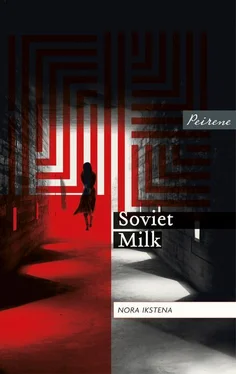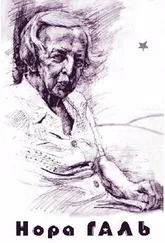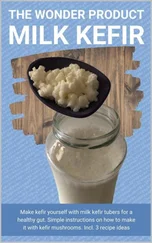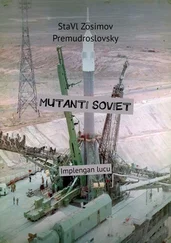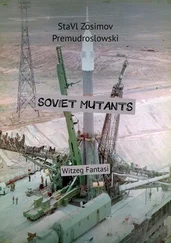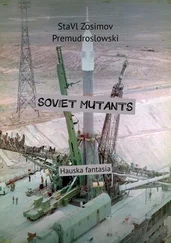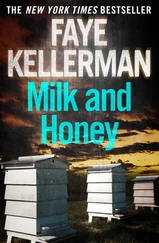My mother was lying in bed in a heavy bathrobe. Scattered around were books, ashtrays, half-eaten apples. The small bedside table was loaded with coffee mugs, and half-empty pillboxes lay littered beneath it.
She smiled slightly when I entered.
‘So you’ve come, city girl,’ she said as she lit a cigarette.
The air in the room was stale. I opened the window.
‘Mamma, look what I’ve brought. Pears, a persimmon and edible chestnuts. Do you remember? The Central Market is full of them, and they’re not so expensive now.’
My mother touched the yellow pears and the flame-coloured persimmon.
‘They’re probably very fragrant,’ she said. ‘But I can’t smell them.’ She inhaled apathetically.
‘I’ll stay with you for the whole week. Get up,’ I said. ‘We have to clean this room.’
My mother submitted like a child. She sat in the kitchen while I tidied her room. In the evening I heated a large tub of water. I helped her to wash and scrubbed her back. I brushed her tangled hair and cut her toe-and fingernails.
‘I do pull myself together a couple of times a week. I have so little strength. I don’t want anything,’ she said. ‘Jesse tidies this and that.’
‘Tomorrow or the day after tomorrow, could you bake an apple cake?’ I diverted my mother’s thoughts. ‘We have to celebrate our birthdays.’
During the days that I was at my mother’s, she livened up somewhat. She listened with interest about my new school, about our evening stories, about the wunderkind with whom I wanted to share some stories but refrained.
‘Mamma,’ I said, ‘I didn’t believe what you said. Now I know, you were right about Latvia.’
‘You’re a smart girl,’ my mother said.
We invited Jesse to our birthday celebration and to share our apple cake. She came in her best clothes, her hair prettily curled.
At our festive table Jesse took out a small box. It was the only gift she had been given by her foster mother in the orphanage. She wanted to give it to us.
‘Open the box,’ Jesse said to me.
I opened it. Inside was a gold ring, a bit of candle wax and a dried twig.
‘Jesse, aren’t you sorry to give it away? It was a gift to you, after all,’ I said.
‘It was freely given. I freely give it away,’ Jesse said, laughing.
We sat late into the night, talking nonsense. I looked on as my mother returned to life. Jesse was happy here with us.
*
‘Now it will be like this for ever. She’ll come during school holidays, sometimes on weekends. Sometimes, when she’s busy at school, she won’t come. When she falls in love, she’ll come even more rarely. This is how itwill be now, Jesse.’
‘You’ve been in bed for three days in a row. Get dressed. Let’s go for a walk.’ Jesse never lost hope that I’ll be able to crawl out of my hole.
‘Cigarettes and books have torn you away from real life. Those damned pills too,’ Jesse mumbled, gathering mugs and ashtrays.
‘They make it easier for me, Jesse,’ I said. ‘If only for a moment, I’m in another world.’
‘What’s wrong with this world?’ Jesse asked. ‘Tell me what’s wrong with it? In the mornings the sun dawns, in the evenings it sets. The days pass peacefully. We don’t have serious ailments, we’re not starving. We have our homes.’
‘Jesse, when you talk like that, I almost start to believe you.’
‘Admit it, admit this truth,’ Jesse continued. ‘Then you’ll be free for once.’
‘But Jesse, I’ve never been a slave to them – the cigarettes, the books and the pills.’
‘Truthfully you’re not?’
‘I’m not, Jesse. This is why I feel free.’
A little offended, Jesse left my room. I heard the clattering of dishes as she washed them in the kitchen.
I forced myself to get dressed and we went out for a walk. It was a tranquil November, the kind that stirs an ache for the past. We walked in silence along the river in the direction of the kolkhoz fields. Beyond them lay the meadows. Hardly anyone went there any longer, maybe only in the summers to gather herbs for tea and wild flowers. But Jesse and I liked it here. The meadows led back to the overgrown riverbank, where bulrushes browned and shimmered, touched by the first frost.
‘Look,’ said Jesse, ‘they’ve not turned to fluff, they’vejust frozen.’
‘Jesse, what shall I do? My soul is sorrowful enough to die. It’s frozen,’ I said, looking on as she touched the bulrushes.
Jesse was silent. The river was silent in front of our very eyes. The overcast sky was silent.
We walked back home along the path by the river. Jesse walked in front. I followed in her footsteps. Suddenly she stopped and turned around.
‘For God’s sake, pull yourself together,’ Jesse said.
Jesse then started telling me about the orphanage, where boys had tied her to a post, a rough post thick with splinters. They had tied her almost naked, in her skimpy undershirt. They made her say, ‘Better that I hadn’t been born!’ Jesse had stayed silent; as if her mouth was full of water, she’d stayed silent. But they had yelled, ‘Say it, you freak, say, “Better that I hadn’t been born.”’ But Jesse had kept silent, as if she had a mouthful of water. Then the boys had thrown stones at her. They’d hit her legs, her face, her arms. And they had continued to yell, ‘Say it, say it: “Better I hadn’t been born.”’ But she had suffered and in silence. Not once in her life had she said those words. Then she had lost consciousness.
When Jesse finished speaking, she turned and went on her way. I continued to walk in Jesse’s footsteps.
*
Returning to Riga after spending the autumn school holiday with my mother, I was still uneasy about her. It was a comfort knowing that Jesse was with her. Not wanting to worry my grandparents, I told them that everything was more or less fine, that my mother was now working less and resting more, something she deserved to do long ago. I said we had had a wonderful time, that we had baked an apple cake, celebrated our birthdays, roasted potatoes on coals in the wood stove, and that I had breathed good country air and the days had flown by.
I was now into my second term at school. I could not let my marks slip after finishing the first term so well. The wunderkind had begun to pay attention to me, which was a great honour. We had a heavy course load. Military training had been added to the curriculum. We all had to lie on our stomachs on the school’s smelly gym mats and spread our legs wide (which amused the boys no end, for the girls were not allowed to change into trousers), then aim a rifle at a target and pull the trigger when the instructor yelled ‘Shoot!’ Anyone who couldn’t follow his orders received the instructor’s favourite line: ‘Po druzhbe dvoyechku’ – ‘For friendship’s sake, do it twice.’ His cruelty paralysed us all. He was quick to dole out 2s – the lowest grade on your report card – which could ruin a high grade average. After the shooting exercise we had to don gas masks, removable only at the instructor’s order. One friend fainted because it turned out that her mask’s valve was closed. She nearly suffocated while waiting for the order.
I hated that short, fat instructor. In my imagination he became the culprit for this Soviet absurdity of parallel lives. Then a ray of light pierced my hopelessness. A call for applications to a cultural history group appeared on the school bulletin board. The meetings would take place outside class time. Of course I applied.
Three students came to the group’s first meeting: myself, the wunderkind and one other girl. We were introduced to Teacher Blūms, who looked as if he came from another world. He had a high forehead, bushy, longish hair and a thick beard. He didn’t even look like a teacher. He spoke in a quiet voice and what he spoke about was quite otherworldly.
Читать дальше
